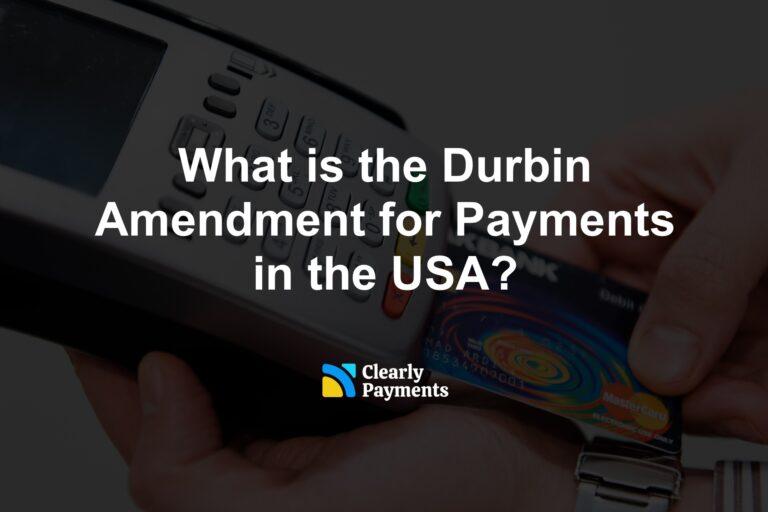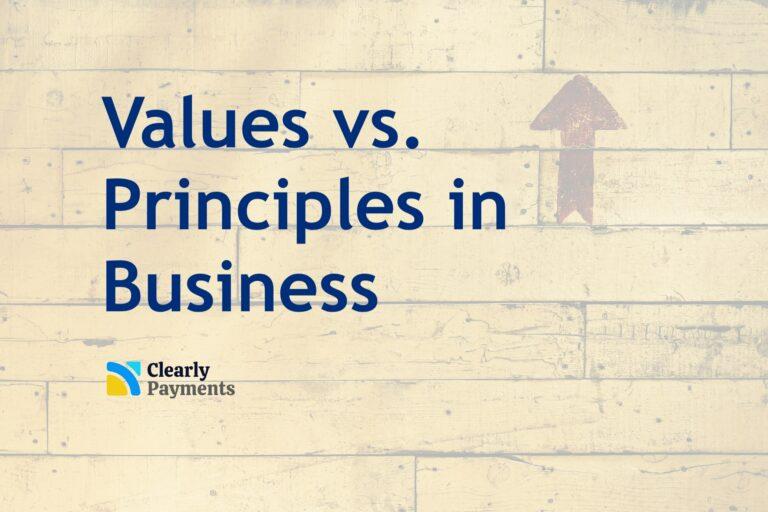

The Durbin Amendment has reshaped the U.S. financial system since it began in 2010. Named after its chief advocate, Senator Richard Durbin, this legislative moved was designed to fix the increasing interchange fees charged by banks for debit card transactions. By limiting debit card fees, the amendment tried to make


A return policy is a must. Whether you allow returns or you don’t, a policy should be clear. There are statistics out there that around


When you’re in payments, you’re in an industry with thousands of competitors in a complex value chain. In fact, most of the industry involves just


Future delivery is an important situation for some merchants in payment processing. It’s good to know how to deal with it and your payment processing


Payment aggregators (aka third-party processors) are service providers that allow other businesses to accept credit cards without having to set up a merchant account. They


Billing cycles are one of the most important components that payment processors use to determine the risk level of a business. They determine the risk


It has happened to many businesses before and it’s not a good experience. You are halfway through a busy day and a colleague tells you


The quick answer is yes, you need a merchant account if you are going to accept credit card payments from your customers. A merchant account


If you know why consumers do chargebacks, you can work on preventing them. Chargebacks are one of those things that you should pay attention to


You want to get an understanding of how people are paying for things. Here’s a set of stats to give you the lay of the


Contactless payment is when a consumer taps their card on the payment terminal (point-of-sale, POS) to authorize a transaction. There’s no PIN, no signature. It’s


As a merchant, you need to know there is a difference between the merchant fees of credit cards vs debit cards. In the end, credit


It costs money for a business to accept credit cards. It would be nice if it was free, but it isn’t. The cost is generally


The credit card processing industry has some of the most complex pricing of any industry. To make it more difficult, the industry is so competitive


Payment processors and ISOs (Independent Sales Organizations) mostly sell the same products and services. In the end, ISOs resell products and services from processors and


When getting a merchant account, many payment processors will ask for a personal guarantee. There are some cases where this may not happen, for example


There are a number of different methods that payment processors charge for credit cards. Behind these pricing methods are costs which vary depending on numerous


It’s important to have both values and principles in your business. It allows you to build a strong culture and therefore wield the benefits of


PCI is an industry standard set by the PCI Security Standards Council. PCI stands for Payment Card Industry. Essentially, it provides a set of things


It is tough to determine the best payment processor. All merchants want the best and the best really depends on your business. We believe the


Chargebacks are a pain. If you get a chargeback, it means a customer of yours has got to the point where they don’t believe they


Type of Credit Cards Merchant account providers generally combine Visa, MasterCard and Discover as a standard offering. American Express deals directly with merchants to create
Copyright © 2025 TCM Inc. | Privacy Policy
TCM is a payment processor in Canada. The TCM name and logo are trademarks of TCM Inc payment processing in Vancouver, Canada. The Interac name and logo are trademarks of Interac Inc Canada. The Visa, MasterCard, and AMEX logos are trademarks of Visa International, MasterCard International Incorporated, and American Express Company. TCM is a Registered Partner/ISO of the Canadian Branch of U.S. Bank National Association.